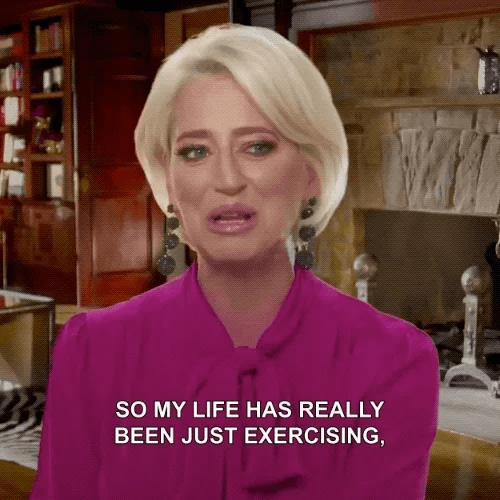There you are! I thought I’d lost you but Mall Talkers are loyal af. I’m back after a long hiatus. Boy did I need it. I did a little tour in the UK over the holidays, took about three photos and was the most present I’ve ever been on a trip.
I spend NYE on the couch watching a movie with a roaring fire and went to bed at 10pm and it was the best New Years I’ve ever had.
I also spent almost no time on social media and it’s crazy how much happier I am when I ignore my IG for a few days. If I accumulate a certain amount of wealth, you will never see or hear from me again. But until then, I like to get my kicks just like everybody else, and building a business sort of demands participation.
Anyways, that’s not what this post is about.
I’d like to discuss what is perhaps an unpopular opinion.
Ozempic, GLP-1, Semaglutide. Whatever you want to call it. This is the hero Americans needed.
When the diet programs and weight loss plans won’t cut it, you have to call in the big guns, and nobody knows big guns better than Americans. (‘Murica)
Personally, I think Ozempic going mainstream is fucking fantastic. The reality is, people are not good at losing weight, period. We are not good at changing our diets or lifestyles, and we are certainly not good at living in a caloric deficit through pure willpower.
Even those who are not considered clinically obese but are still overweight should have access to a semaglutide medication due to the likelihood that they will continue to gain weight over the course of their life. The goal from a population health perspective should be to prevent obesity, not wait for it to happen.
Now hear me out because I know some of you are screaming. I’m not saying this is THE answer to America’s obesity problem. It is corrective and not addressing the root cause; That is to resist everything being shoved in your face and choose to eat seasonally grown, regeneratively farmed, real foods, maintain spurts of activity throughout the day, build muscle mass to burn fat, and generally live the kind of healthy lifestyle that most Americans do not live today.
In 2024, the CDC reported that 40% of adults in America are obese. That’s almost half of the adults in this country! Obese!
Even more upsetting is the CDC’s report that 20% of American children are obese:(
If schools don’t teach proper nutrition or exercise, and parents don’t either, who is teaching children what to eat? Monsanto, Kellogs, CocaCola, Hershey. You know, those guys.
Until the obesity issue can be addressed from the ground up by parents, schools, coaches, (literally anyone??) we’re going to be injecting adults with Ozempic to correct their BMI and keep them clear of the myriad comorbidities and chronic health conditions that go with being overweight, like cardiovascular disease, type II diabetes, cancer, stroke, kidney disease, and dementia.
And having an obese population isn’t free for any of us. According to the CDC, obesity costs the US $173 BILLION each year from direct medical costs like the treatment of obesity-related conditions such as heart disease, diabetes, and certain types of cancer, indirect costs lost productivity due to illness, disability, and absenteeism, and employer costs like higher health insurance premiums and increased medical expenses for employees with obesity.
I think it’s nonsense that these pharmaceutical companies are claiming shortages and driving prices up. It’s not a fucking natural resource. It’s insanely well-funded and made in a lab. Make more and stop charging people ungodly amounts of money to improve their health.
Also an interesting conundrum for the pharma companies: I wonder how they feel about their consumers losing weight and getting healthier, since they rely so heavily on a fat, sick population so they can peddle their meds for COPD and diabetes.
Tis yet to be seen. My point is this. In a utopian world, we would all be drinking pristine water, eating straight from our gardens, and burning the calories we consumed each day. But that’s not America. It would be great if we could max out on herbal remedies, adequate sleep, and consistent exercise, but staying consistent with lifestyle and habit changes are hard - and most are not going to see the changes they need to without a more serious intervention.
Last point - Obesity is no bueno for mental health. The risk of depression is higher for people with a higher BMI. And the relationship between depression and obesity is bilaterial. If you’re obese, you’re more likely to be depressed, and if you’re depressed, you’re more likely to be obese.
It doesn’t help that weight gain is a side effect of many antidepressants. We all know someone who has lost significant weight on GLP-1 and has a new lease on life. They are happier, more confident, and outgoing. Whether they wanted to lose 10lbs or 100lbs, shedding excess weight makes a person feel like themself again.
Short n’ sweet one to welcome you back! How about a little mental health moment? My mom went over to her friends house and they each decorated a rock and on it they wrote one word that they wanted to focus on this year. (so cute) My mom wrote “embrace” on her rock. For me it resonated as embracing where I am at this point in my life, despite it being different than I imagined. What will you embrace this year?
Thanks for reading Mall Talk ₊˚⊹♡







I agree with a lot of this, even as I also think ultra processed food is probably the root of the problem. It feels like the deck is stacked against us in terms of: a lot of people cannot access healthy food, either because of money, geography, or both. If there’s anything that exists to make people healthier, it’s a positive thing overall, even if it doesn’t address the primary causes directly.